We believe the Church’s social mission is an essential measure of every parish community . . . . We need to build local communities of faith where our social teaching is central, not fringe; where social ministry is integral, not optional; where it is the work of every believer, not just the mission of a few committed people and committees” (Communities of Salt and Light, p. 4).
The following questions are based on the framework for integrating social ministry throughout parish life contained in Communities of Salt and Light. They are designed to help pastors, parish councils, staff, committees, and other groups reflect on their parish’s social ministry. They provide an opportunity to do a general assessment that can identify both strengths and weaknesses in efforts to integrate the Church’s social mission into various aspects of parish ministry. This general assessment can lead to further discussions by those responsible for each area of ministry.
Anchoring Social Ministry: Prayer and Worship
- In what ways does our parish worship reflect Christ’s call to conversion, to service, and to working for justice?
- During the liturgy, in what ways is the gospel’s call to build peace, work for justice, and care for the poor regularly reflected in the general intercessions, in homilies, in our celebrations of special feast days and holidays, and at other appropriate times?
- How do our sacramental celebrations help us renew our commitment to reconciliation throughout our lives and rededicate ourselves to Jesus’ message of love and justice, especially for those in need?
- What opportunities for prayer, scripture study, and reflection on our Christian vocation does our parish offer? How is our social mission incorporated into these activities?
- In what ways are our social ministry efforts clearly rooted in Scripture and spirituality, and connected to liturgy and prayer?
Sharing the Message: Preaching and Education
- How effectively does preaching at our parish reflect the social dimensions of our faith?
- In what ways is our rich heritage of Catholic social teaching integrated into our school curriculum?
- our religious education program?
- our sacramental preparation program?
- our Christian initiation ministry?
- our ongoing religious formation and enrichment for adults?
Supporting the “Salt of the Earth”: Family, Work, Citizenship
- Sustaining Christian marriage and shaping family life around gospel values can be difficult in our culture. What concrete and practical support does our parish offer
- to married couples and to those preparing for marriage (counsel, retreats, small faith communities)?
- to parents (parenting skills workshops, support groups)?
- An important opportunity for living our faith is through our work, in everyday decisions and actions, in the way we treat coworkers and customers. How does our parish support our members in practicing Christian values in the workplace?
- In what ways are parishioners providing leadership in unions, community groups, professional associations, and political organizations? How does our parish support them as they live their faith in these leadership roles?
Serving the “Least of These’: Outreach and Charity
- In what ways is our parish serving those in need?
- How do parishioners become aware of these opportunities for service and action? 3. How effectively have we involved our parish community in our social ministry efforts?
- What direction do our service programs provide to our parish efforts in advocacy -in changing the conditions that create poverty and suffering?
Advocating for Justice: Legislative Action
- How does our parish help parishioners become better informed on public policy issues that impact the poor and vulnerable?
- In what ways do we encourage our members to become more active citizens, exercising their right to vote and participating in public life?
- What opportunities does our parish provide for parishioners to speak and act effectively in the public arena on behalf of the poor and vulnerable, to bring our values to debates about local, national, and international policies and priorities?
- How effectively have we involved our parish community in advocacy efforts?
Creating Community: Organizing for Justice
- What community organization exist in our local community or diocese”
- How is our parish participating in or supporting such efforts?
Building Solidarity: Beyond Parish Boundaries
- In what ways does our parish provide to our members information about the needs of our brothers and sisters, especially the poor and vulnerable, in other lands?
- What links does our parish have to people, parishes, or other groups around the globe?
- What opportunities does our parish offer us to act in solidarity on international

